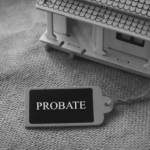Well, Neat!
This past summer I had the opportunity to travel with my family through the beautiful country of Norway. A notable stop was at the Norwegian Petroleum Museum in Stavanger. Its exhibits, models, simulations, and replication of a massive offshore platform and reservoir, a great many of which can be seen in production fields across the North Sea, Norwegian Sea, and Barents Sea, explained the mechanics of the country’s oil industry. According to the U.S. Energy Information Administration, last year Norway accounted for 2% of global crude oil production and 3% of global natural gas production. Crude oil is used to make gasoline, jet fuel, and other petroleum products used in daily life. The wells are owned by the Norwegian state and neighboring countries such as the United Kingdom. Touring the museum prompted me to compare the oil industry of Norway to North Dakota’s, and its production in the grassy fields of the western half of the state.
The United States took first place as the top crude oil-producing country in the world with a percentage share of 14.7%. As a top-five crude oil-producing state, North Dakota comprised 8.9% of the total U.S. crude oil production. McKenzie County, North Dakota is the top oil producing county not only in the state, but in the United States! In July 2023 the county produced 10,873,070 barrels of oil (North Dakota General Statistics, Department of Mineral Resources, https://www.dmr.nd.gov/oilgas/stats/statisticsvw.asp). Unlike Norway, many oil deposits in the U.S. are owned by landowners. In fact, the U.S. is one of only a few countries in the world that allow private individuals to own the minerals under their land. Unless the land owner has sold the mineral rights, while oftentimes preserving ownership of the surface rights, oil companies that are interested in drilling on private land can lease the land. Well-known oil and natural gas companies include Continental Resources, Hess Corporation, and Chord Energy. When an oil company leases land for drilling, the lessors or owners are compensated with royalties.
Ownership
You may be wondering how this information pertains to probates. If you remember reading this blog on being proactive to make your future death easier on your heirs, you know that if your estate upon death consists of real property, the estate is required to go through a probate. You could be part of the aforementioned statistics as an owner or future owner of mineral land. Even if the estate comprises only mineral interests, those interests have to be transferred according to a will or intestate succession. So the next question is: How is the decedent’s mineral interest passed on to the designated heirs? This is something your future personal representative will need to address.
When our office facilitates the probate process, we first look at the previously recorded mineral deed and lease to determine ownership and to discover which oil company is leasing the land. This is also necessary to obtain the legal description of the land, especially if documents cannot be found throughout the probate administration indicating what oil company is involved. Deeds of record can be found on an online search site such as the North Dakota Recorders Information Network.
The next step is to notify the oil company of the deceased person’s death in order to hold the funds in suspense. A new deed, called a Personal Representative’s Mineral Deed of Distribution, is then drafted, executed, and recorded. Certified Letters of Administration or Letters Testamentary, depending on the type of probate, have to be ordered to accompany this deed for recording. The Letters have to be dated after the date of signing of the Mineral Deed.
The final step is to provide the oil company with the owner account number, new owner’s name and W-9 form, death certificate of the previous owner/decedent of the estate, probate Order and Letters, last will and testament (if applicable), and the recorded Mineral Deed. This package is called a ticket and the package is delivered via the owner relation or land administration email or mailing address. The ticket will be dispatched to a division order analyst, who will be your point of contact with the oil company. At this point it usually takes 30-90 days for the transfer and tickets are handled in the order received.
Once the ticket has been processed, the oil company will mail the new owner documents that include a transfer order, division order, and any back-owing payments from when the decedent was alive or during the probate process. You may be required to return certain information to the oil company to begin receiving royalty payments.
A common question our clients have is how a division order is utilized. A division order is an instrument executed by the operator, royalty owners, and any other person having an interest in the production directing the purchaser of oil or gas to pay for the products taken in the proportions set out in the instrument. N.D.C.C. § 47-16-39.3. Essentially it’s a record of your interest in a specific well.
Once the paperwork is complete, it can take even more time to receive the first royalty check in your name, so be patient!
Conclusion
If you need help with deed work to transfer ownership of interests or are the executor of an estate with North Dakota mineral interests, contact our team at SW&L Attorneys by calling 701.297.2890 or emailing info@swlattorneys.com.
The information contained in this article and on this website is for informational purposes only. Do not rely on the information on this website as legal advice. Please refer to the full disclaimer here.










